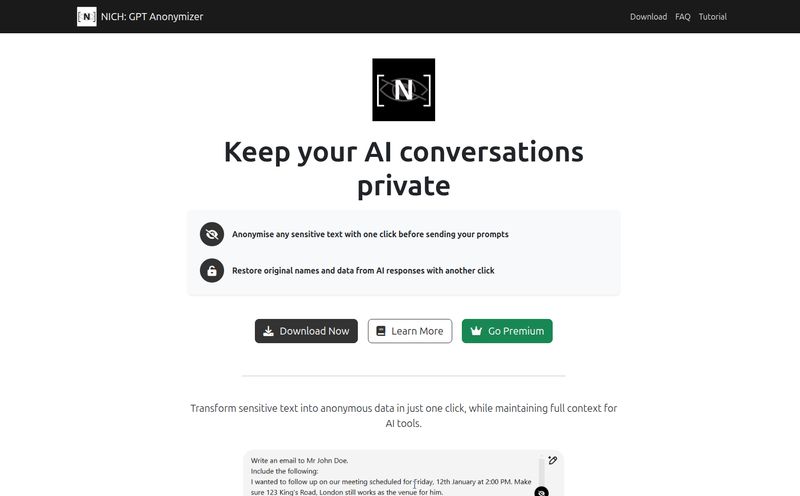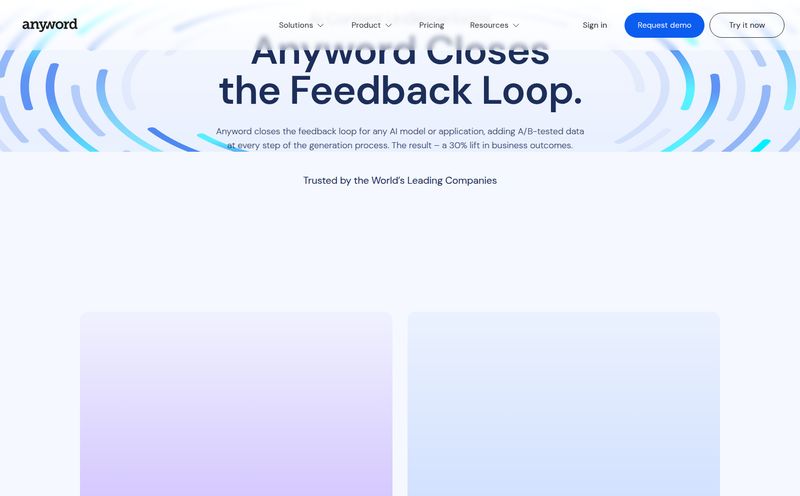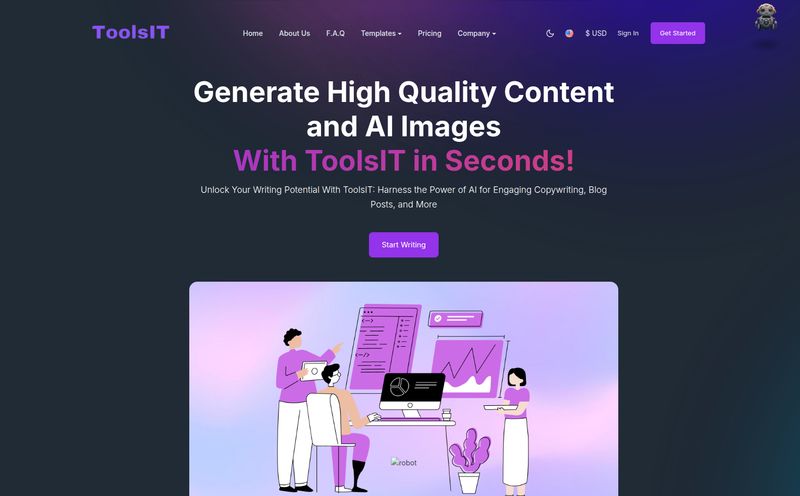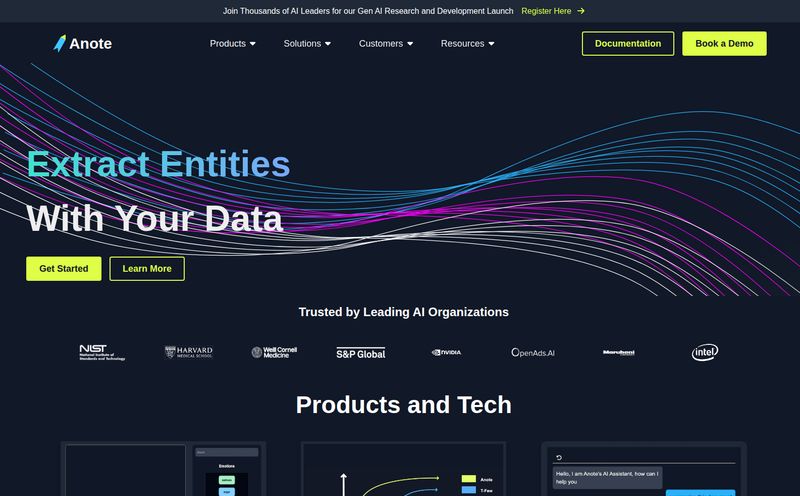As someone who’s been neck-deep in the SEO and dev world for years, I get a little thrill when a new tool pops up that promises to make life easier for the little guy. The solopreneurs, the indie hackers, the one-person-armies trying to build something cool without an enterprise budget. So, when I first heard whispers about Pagery, an “AI-first headless CMS,” my ears perked up.
The pitch was perfect. Simple. Fast. Affordable. AI-powered. All the buzzwords that make a busy developer’s heart sing. I couldn’t wait to get my hands on it, poke around, and see if it lived up to the hype. So I navigated over to pagery.io to sign up, and… I hit a wall. A big, fat, gray-and-white Cloudflare error wall.
Error 1016: Origin DNS error. For the non-nerds among us, that basically means the website’s server isn’t picking up the phone. It's like going to a grand opening only to find the doors locked and the lights off. So, what happened? Is this a temporary glitch, or is Pagery another promising ghost in the startup graveyard? Let's investigate.
So, What Was Pagery Supposed to Be?
Before we get all doom-and-gloom, let's talk about the idea, because honestly, the idea is fantastic. Pagery was positioning itself as the dream content management system for the modern indie developer. You know the struggle: you need a way to manage content for your app or website, but traditional systems like WordPress feel bloated and clunky. They're like using a sledgehammer to hang a picture frame.
Pagery’s solution was twofold: be AI-first and headless.
A headless CMS, in a nutshell, decouples your content (the “body”) from the presentation layer (the “head”). Instead of being locked into a specific website theme or structure, you get pure, raw content delivered via an API. You can then use that content literally anywhere—a React website, a mobile app, a smart display, you name it. It's ultimate freedom for developers who want to control the user experience from the ground up.
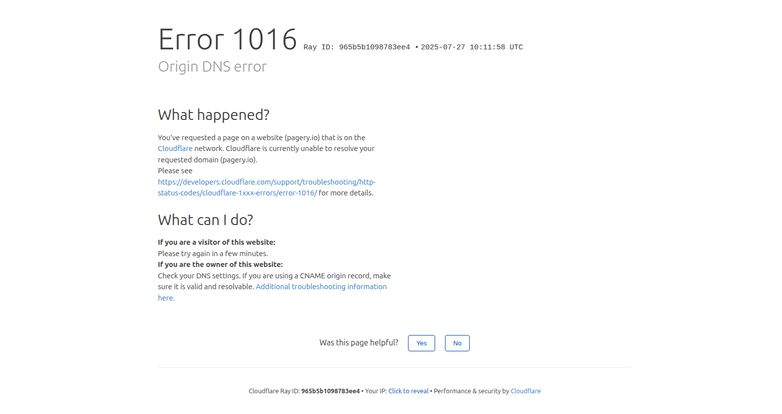
Visit Pagery
The target audience was crystal clear: solopreneurs who are juggling code, marketing, design, and everything in between. The promise was to help you move fast without sacrificing quality. A noble goal, and one that the market is desperately crying out for.
The Core Features That Caught My Eye
Beyond the high-level pitch, the feature set was what really got me excited. It wasn't about having a million buttons; it was about having the right buttons.
The "AI-First" Promise
This was the main hook. The idea of having an AI assistant baked directly into your CMS is… well, it’s brilliant. Imagine struggling with writer's block for a blog post or a product description. Pagery promised to help you generate ideas, draft content, and refine your text right where you work. For a solo founder who's also the lead (and only) marketer, that's not just a feature; it's a lifeline. I’ve spent countless hours staring at a blinking cursor, and the thought of an AI partner to get the ball rolling is incredibly appealing.
Going Headless: Flexibility is the Name of the Game
I’ve worked with a lot of CMS platforms, and the restrictive nature of traditional ones can be a real pain. A headless architecture, which Pagery was built on, is a breath of fresh air. It treats your content like data, served up through a clean API. This means you can build your front-end with whatever hot new JavaScript framework you want this week (Svelte, anyone?) and just pull your content from Pagery. It’s a modern approach for a modern web development workflow.
Built for Speed and Simplicity
The project's whole vibe was about cutting the fat. No convoluted menus, no legacy bloat, no features you’ll never use. The focus on being a simple and fast content management system is a direct response to the overly complex, enterprise-focused solutions out there. Sometimes you just want to write some content, hit publish, and have it appear in your app. It shouldn’t require a certification and a 200-page manual. Pagery seemed to get that.
What's the Catch? A Look at Potential Downsides
Look, no tool is perfect, right? Even in its conceptual stage, there were some obvious trade-offs with Pagery's approach. Based on its 'simple' focus, it was never going to compete with the sprawling feature sets of enterprise-level giants like Contentful or Strapi. If you needed complex user roles, intricate content workflows, or niche integrations, you'd probably have to look elsewhere. But that’s okay! It wasn’t trying to be for everyone. It was for the indie hacker.
And let's be real about the AI. While a huge pro, it's also a potential pitfall. Relying too heavily on AI for content requires serious user oversight. We've all seen AI-generated text that sounds… off. Stiff, robotic, or just plain wrong. The human touch is still essential for quality, tone, and accuracy. It's an assistant, not a replacement for your brain.
The Million-Dollar Question: Pagery Pricing
This is where things get a bit hazy, even before the website went down. There was no public pricing page, which is typical for a product in early access. My guess? They were aiming for a generous free tier to get indie devs hooked, followed by a simple, affordable monthly subscription. Something in the $10-$25/month range would have hit the sweet spot for their target audience. But without a live site, we can only speculate. This lack of a clear business model could, perhaps, be part of the reason for its current state.
The Elephant in the Room: That Cloudflare Error
So, we have to circle back to this. The Error 1016. I didn't just see it once; I checked back over a few days. It's persistent. As the Cloudflare documentation explains, this error means their servers can’t find the origin server for Pagery. It’s not a simple site-down glitch; it points to a fundamental DNS configuration problem. Maybe the domain expired. Maybe the hosting was taken down. Maybe the developer just… stopped.
Is it a temporary setback while they reconfigure things? Or is it a quiet, unceremonious end for a project that had so much potential? In the fast-moving world of indie development, projects often burn bright and fast. Sometimes life gets in the way, or a founder moves on to a new idea. It’s a tough business.
My Final Thoughts on the Ghost of Pagery
I'm genuinely a bit bummed out about Pagery's current MIA status. The concept is a 10/10 for me. An AI-powered, developer-friendly headless CMS built specifically for solopreneurs is something the world needs. It's a tool I would have used, and one I would have enthusiastically recommended to others in my circle.
Maybe it will pop back up. I hope it does. But if it doesn’t, it stands as a testament to a fantastic idea and a stark reminder of how challenging it is to get a project off the ground. The road for indie hackers is paved with brilliant, abandoned projects. For now, Pagery remains a ghost—a tantalizing glimpse of what could have been. I’ll keep the tab open, just in case.
Frequently Asked Questions
- What exactly was Pagery?
- Pagery was pitched as an AI-first, headless Content Management System (CMS) designed specifically for solopreneurs and indie developers. It focused on providing a simple, fast, and affordable way to manage content for websites and applications.
- Who was the target audience for Pagery?
- Its primary audience was the indie hacker community—solo developers and small teams who need powerful, flexible tools without the complexity or cost of enterprise-grade software.
- Can you explain what a headless CMS is?
- A headless CMS is a back-end system for managing content that is “decoupled” from the front-end presentation layer. It delivers your content via an API, so you can use it with any website framework, mobile app, or other digital platform you choose, giving you maximum design and development flexibility.
- Is Pagery still active or available?
- As of late 2024, the Pagery website (pagery.io) and its subdomains are showing a persistent Cloudflare DNS error, suggesting the service is currently offline and may be inactive. Its future is uncertain.
- What are some good alternatives to Pagery?
- If you're looking for a headless CMS with a good developer experience, you might check out platforms like Strapi (open-source and self-hostable), Contentful (a popular enterprise choice with a free tier), or Sanity.io (known for its flexibility and real-time collaboration).
Conclusion
So, there you have it. The story of Pagery is a familiar one in the tech world: a brilliant idea that hit a roadblock. The need for a simple, AI-enhanced headless CMS for the solo creator is stronger than ever. While Pagery's own fate is a mystery, its concept lit a path that I hope other developers will follow. Here's to the indie hackers, the builders, and the dreamers. Keep building cool stuff.
References and Sources
- Cloudflare Support: Error 1016 - Origin DNS error
- Contentful - Headless CMS Platform
- Strapi - Open-Source Headless CMS
